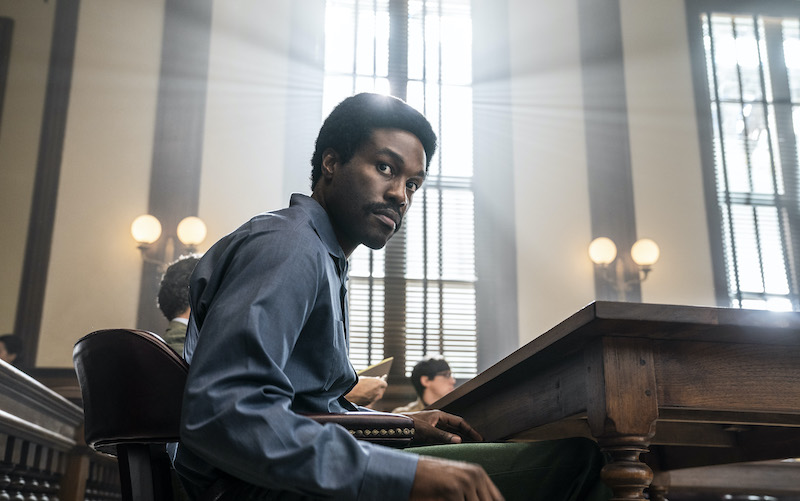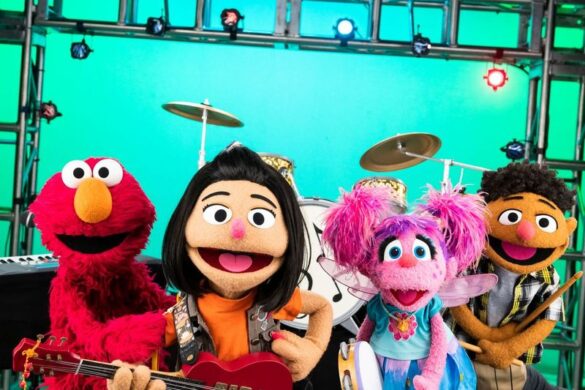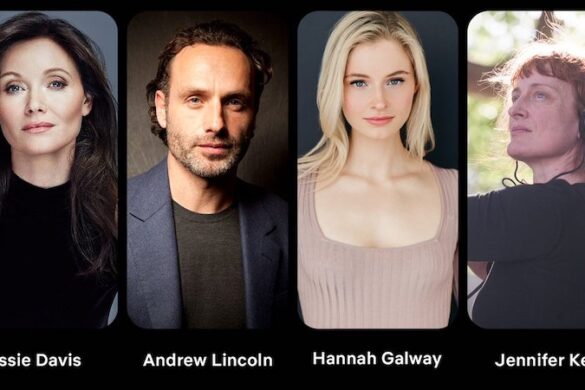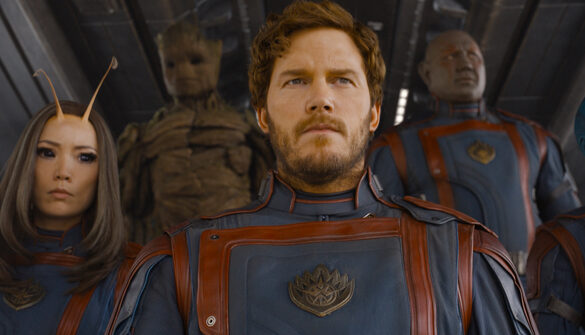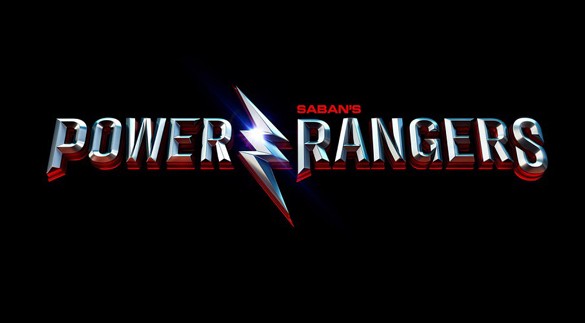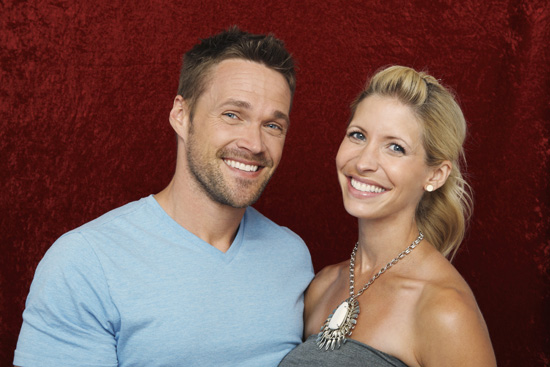There is nothing small about the protests that occur during major political strife. Using that outrage to speak out against a corrupt system that works against the disenfranchised is the very foundation of freedom of speech. All of this makes the release of Aaron Sorkin’s The Trial of the Chicago 7 may feel timely. The film’s release comes right before a major presidential election. It is almost as if the writer and director wanted to remind us about the people’s right to protest and their power to create change by voting in a time wrought with racial injustice and political oppression.
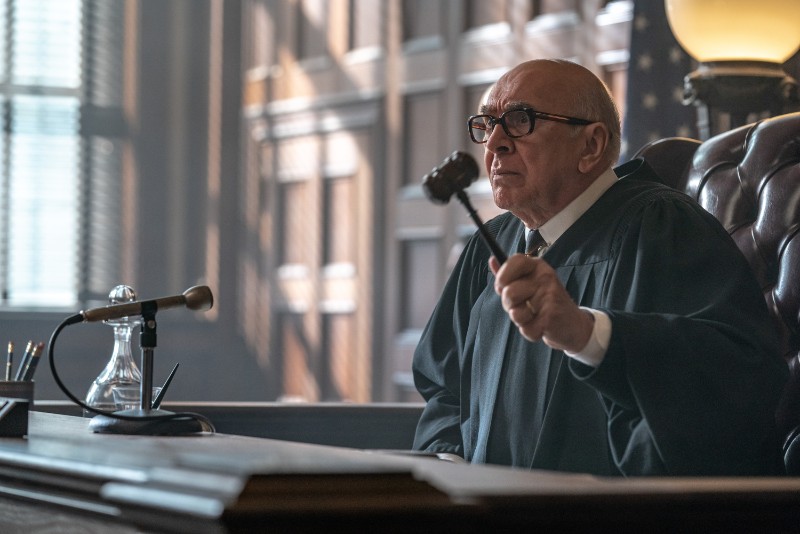
Sorkin’s latest directorial effort center assembles a strong ensemble cast that utilizes the filmmaker’s penchant for writing profoundly snappy and engaging dialogue. While there are some inspirational and humorous moments, the film has to rely solely on the performances to distract us from its formulaic structuring.
In the film, the Nixon Justice Department’s new Attorney General John Mitchell (John Doman) and Young Justice Department lawyer Richard Schultz (Joseph Gordon-Levitt) are starting to build their case against eight protesters for inciting a riot during the 1968 Democratic National Convention. Most have never met each other before. And there is clear evidence that the police were the ones to instigate the riots.
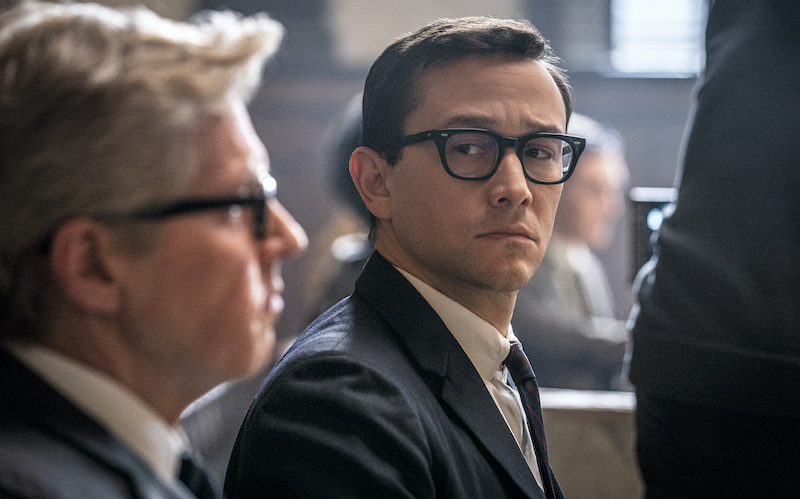
Despite that, the case moves to trial. Abbie Hoffman (Sacha Baron Cohen) and Jerry Rubin (Jeremy Strong) of the Youth International Party, otherwise known as the Hippies; Tom Hayden (Eddie Redmayne) and Rennie Davis (Alex Sharp) of the students for a democratic society, both of whom vowed to be there for a peaceful protest; David Dellinger (John Carroll Lynch), a staunch objector of the Vietnam War; and Lee Weiner (Noah Robbins) and John Froines (Daniel Flaherty), two scapegoats; and Black Panther co-chairman Bobby Seale (Yahya Abdul-Mateen II) were all put on trial for crossing state lines to incite a riot.
But this isn’t a criminal trial or a civil trial. It’s a political trial. One that is being used to make the eight an example of what will happen when you protest. And that wasn’t the only injustice that was being served. The egregious acts Seale experienced during the trial underscored the inequalities of a deeply flawed justice system.
Though Seale did not have his lawyer present during the proceedings, Judge Julius Hoffman (Frank Langella) saw it fit that he be tried along with the seven, even though he’s never met them. Throughout the film, he points out the bias, and the broken system is stripping his rights to a fair trial. This obvert mistreatment reaches a boiling point to where Seale is beaten, bound, and gagged so that the trial can proceed in a so-called peaceful manner. Eventually, the government sees the error of their ways and declares Seale’s case a mistrial. So despite Abdul-Mateen II’s limited screentime, the actor doesn’t waste a single moment and gives a commanding performance in every scene.
Sorkin is no stranger to dramatizing the courtroom drama in a way that is fully engaging. ‘A Few Good Men,’ ‘The Social Network,’ and ‘Molly’s Game’ is evident that the filmmaker knows how to make trials pop. So the film’s the real-life moments is used to elicit a kind of frustration when judicial system, that is created to be fair and just, is broken due to corruption. Langella’s Hoffman has bias and prejudices that he will stonewall William Kunstler (Mark Rylance), the defense lawyer for the 7, every chance he gets.
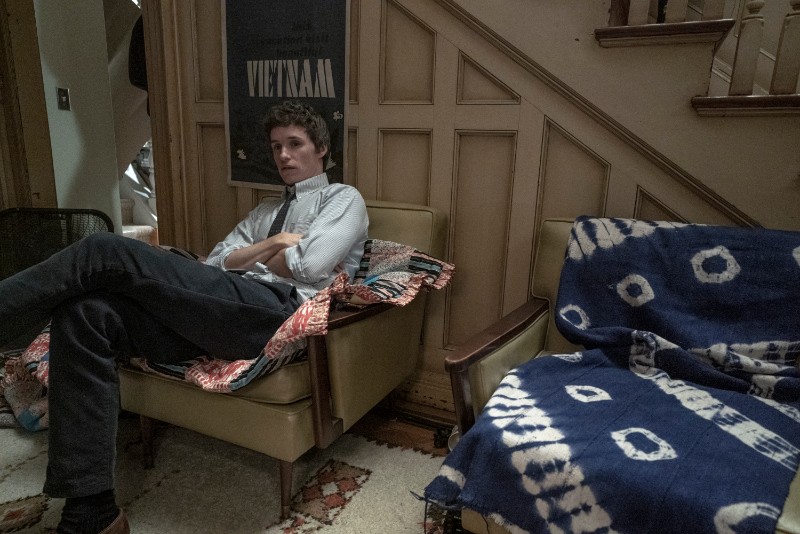
Though ‘The Trial of the Chicago 7’ has a two hour and ten-minute runtime, the film moves smoothly nicely thanks to Alan Baumgaretn’s editing. Meanwhile, Phedon Papamichael’s cinematography that captures the blood and grit protesters clashing with police, and the flocculating tones from the cold drama to the hilarious circus act in the courtroom.
And while the courtroom is filled with legal drama and judicial jargon, it is not without its comedic breaks from Cohen’s Abbie Hoffman. Although, you could see those same comedic breaks as trying to make a political statement. They may be a bit showy, but honestly, it plays to Cohen’s strengths as an actor and proves that comedy isn’t the only talent he has. His performance is even better when he finds that balance of delivering witty comedic banter and making a serious statement.
And because this is an ensemble piece, everyone gets their moment to shine. Redmayne’s Tom Hayden is somewhat of a lead role considering the screentime that he gets, though it’s far more reserved and stoic, making it a decent performance rather than a gripping one. Strong’s Jerry Rubin seems quite perplexing as the character goes from being Hoffman’s staunch confidant to childishly naive when he tries to comprehend an undercover cop’s affections towards him. Lynch also delivers a solid performance as a father who is against the Vietnam War. And in a very surprising turn of events, Michael Keaton enters the picture, and like those who have a limited amount of screen time, makes the most of what he is given.
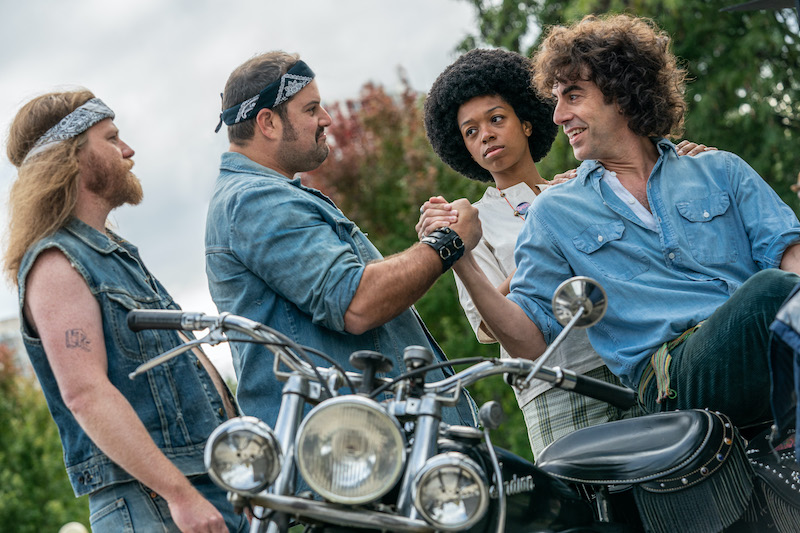
So the ensemble cast does a lot of the heavy lifting to carry the film and make it memorable, it also helps to have a story that speaks to an audience in a way that tells them they can be the change they want to see in the world. But some of the trouble with the film is its shifting dynamics and tones. For instance, the music choices and comedic timing can throw the film off balance. But just for a bit. The choice of having Daniel Pemberton’s ‘We’re going to Chicago’ may be a bit too on the nose, but it also is an odd juxpositing piece of music given that it plays against the backdrop of the assassinations of Martin Luther King Jr., Bobby Kennedy, and footage of the Vietnam war. And some of the comedy relief feels out of place.
Despite those flaws ‘The Trial of The Chicago 7’rises above its formulaic structure by relying on the terrific ensemble cast delivering Sorkin’s juicy dialogue. It’s done in a such a way that grips you and never let’s go. Not only that, it also captures the spirit of protest and counterculture while also revealing how the differing agendas can be a determent to a common idealism. ‘The Trial of the Chicago 7’s timely release reminds us that we need to use our voices in times of injustice, racial inequality, and oppression.
‘The Trial of the Chicago 7’ doubts on Netflix October 16, 2020.

